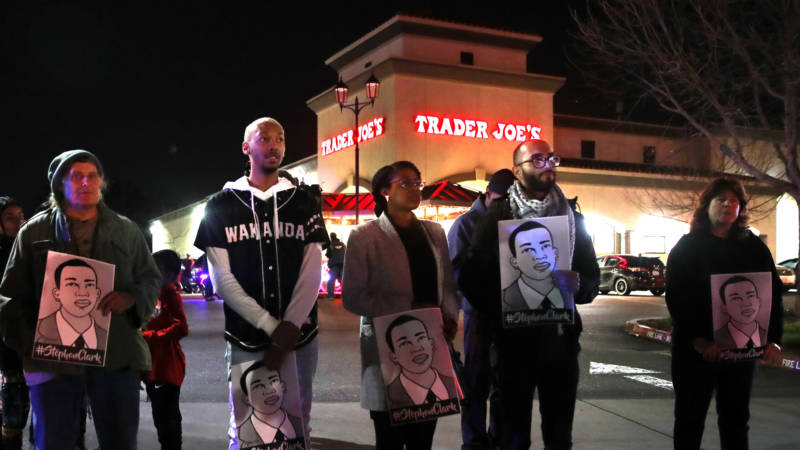"No matter the reason an order to disperse was given, no member of the press should be detained for doing their job," Steinberg wrote.
The dozens of arrests surprised many of the activists who left after the initial dispersal orders from police.
"I'm pissed, I'm angry. I'm frustrated," said Berry Accius, an organizer with Voices of Youth. "I thought everything was cool, we were about to end the protest ... we accomplished what we wanted to accomplish and to get a phone call 30 or 40 minutes later and hearing my comrades, some of my friends, [Pastor] Les Simmons, some of my young people that I was with protesting shutting down the mall have been arrested today, and all for what?"
Clark's death made national headlines and added another layer to an ongoing conversation about the police use of deadly force, particularly against black men. The police shot Clark seven times, including three times in the back, the official autopsy found.
The officers, Terrence Mercadal and Jared Robinet, were responding to a 911 call of a man breaking car windows in the South Sacramento neighborhood of Meadowview. The two officers pursued Clark into a backyard — which they later learned was his grandmother's home — where they shot him. The officers said they believed Clark had a gun, but police only discovered a cellphone next to his body.
Less than a week after Clark's death, the police department released body-camera and helicopter videos from the shooting, prompting large protests. In one gathering, demonstrators spilled into the streets of downtown Sacramento, brought traffic on Interstate 5 to a stop and blocked thousands of fans from entering the Kings' game with the Atlanta Hawks.
Nearly a year after Clark's death, the district attorney's decision not to charge the officers renewed outrage over the case. Critics, including Clark's family, also said it was inappropriate for Schubert to publicize the young man's text messages, internet searches and drafts of emails that were pulled his cellphone. She presented those records as signs that Clark was troubled.
"She used that as a smear campaign or a fake way to justify and condone," Clark's mother, Se'Quette Clark, told NPR this weekend. "Her officers weren't doing — she never once addressed their actions. She presented and painted a picture of my son that was her opinion."
On Monday, the Kings announced increased security around the Golden 1 Center before that night's game, including closing the arena plaza and some Downtown Commons stores. The Downtown Sacramento Partnership also sent a notice to businesses warning of "possible traffic delays and protests."
Copyright 2019 Capital Public Radio. To see more, visit Capital Public Radio.
